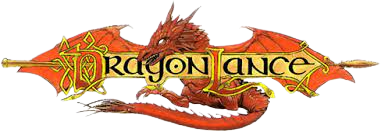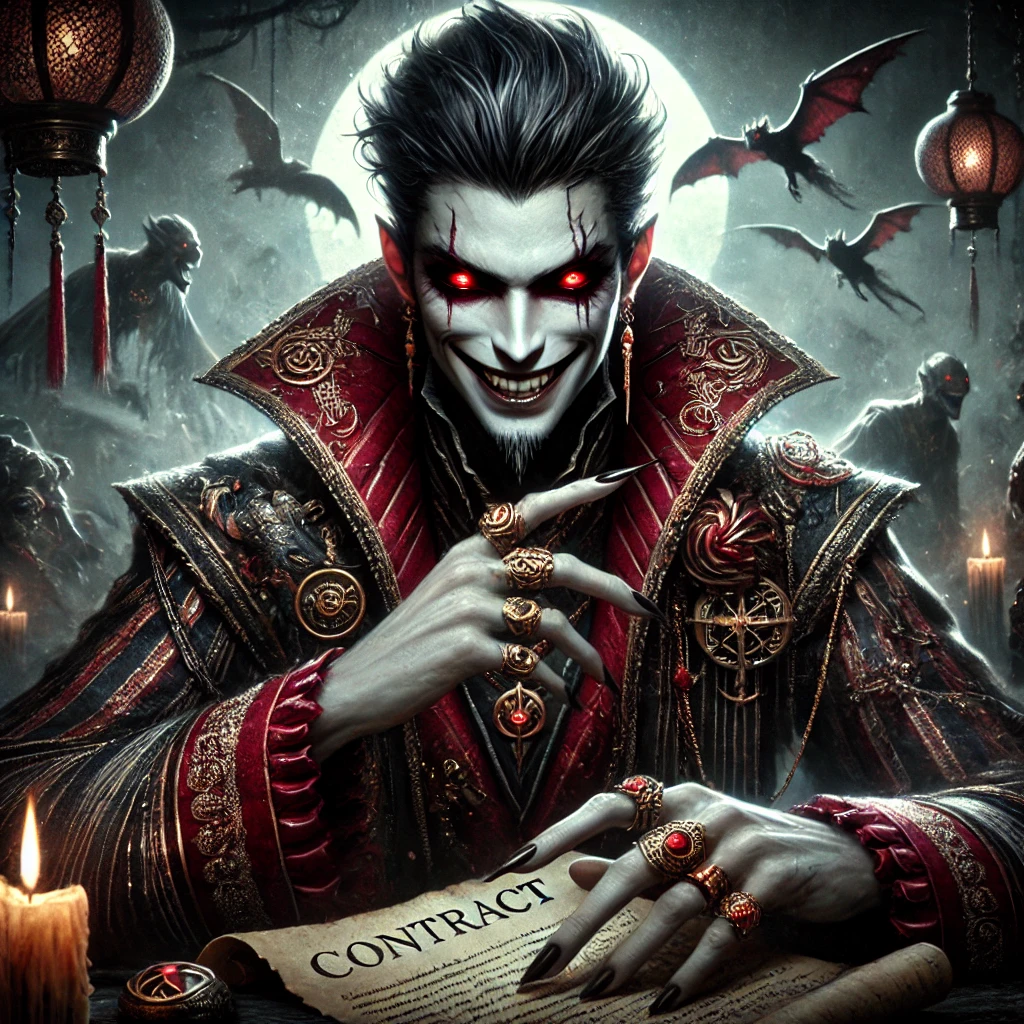Hiddukel, the Prince of Lies
Table of Contents
ToggleIntroduction
In the world of Dragonlance, where gods shape the fates of mortals and kingdoms rise and fall, Hiddukel lurks in the shadows, whispering secrets of deception, betrayal, and insatiable greed. Known as the Prince of Lies, the Lord of the Broken Deal, and the Master of Corruption, Hiddukel is the divine patron of dishonest merchants, thieves, backstabbers, and those who would sell their souls for wealth and power.
As one of the Gods of Evil, Hiddukel works behind the scenes, never acting openly but always manipulating events to his advantage. He does not seek conquest like Sargonnas or absolute power like Takhisis—instead, he thrives on corrupting others, making them betray their own ideals, and turning trust into ruin.
Origins and Role Among the Gods
Hiddukel was created by the High God, but unlike the other deities, he was born from the flaws of Krynn itself—a god of avarice, deception, and endless hunger. While some gods inspire loyalty or fear, Hiddukel inspires desperation, tempting mortals with deals too good to be true and bargains that always come at a cost.
He is not a warrior or a leader of armies—his battlefield is the marketplace, the backroom deal, and the whispered conversation in the dark. He thrives in corrupt courts, dishonest trade routes, and the hearts of those who crave wealth at any cost.
Domains and Influence
Hiddukel is the god of:
- Greed and Corruption – Encouraging mortals to value wealth over honor.
- Deception and Lies – Patron of con artists, spies, and silver-tongued manipulators.
- Broken Deals and False Promises – Master of contracts that lead to ruin.
- Souls and Bargains – Tempting mortals to sell their very essence in exchange for fleeting power.
His influence is strongest among black market dealers, corrupt politicians, traitors, and those who believe that “everyone has a price.”
Hiddukel’s Followers and Their Ways
Unlike other gods, Hiddukel’s followers do not form churches or temples—instead, his influence spreads through whispers, secret handshakes, and sealed contracts. His followers do not pray for blessings; they make deals, each one drawing them deeper into his web of corruption.
His followers include:
- Dishonest Merchants – Profiteers who cheat, swindle, and manipulate for gain.
- Con Artists and Spies – Masters of deception who twist truth into lies.
- Greedy Nobles and Corrupt Officials – Those who sell justice to the highest bidder.
- Soulsellers and Bargainmakers – Those who trade their own souls—or others’—for power.
Symbols and Worship
Hiddukel is often depicted as a gaunt man in tattered finery, grinning as he holds a contract in one hand and a noose in the other. Sometimes, he takes the form of a snake, a silver-tongued merchant, or a shadow in the corner of a deal gone wrong.
His sacred symbols include:
- A broken coin – Representing deals that only benefit one side.
- A blood-stained contract – A sign of his binding, corruptive bargains.
- A dagger hidden behind a handshake – Symbolizing betrayal in business and trust.
Temples to Hiddukel do not exist in the open—instead, his worship is conducted in secret guild halls, back-alley deals, and whispered negotiations.
Worship and Rituals
Hiddukel does not demand prayers or devotion—he demands transactions. His followers do not sing hymns; they seal deals, betray allies, and trade their morality for material gain.
Key rituals include:
- The Pact of Wealth – A secret ritual where a follower offers something dear in exchange for Hiddukel’s favor.
- The Broken Oath – A test of devotion, where the follower must betray someone close to them.
- The Price of Power – A ceremony where a mortal trades part of their soul for temporary strength, always regretting it later.
Allies and Rivals Among the Gods
As a God of Evil, Hiddukel works alongside:
- Chemosh, god of undeath, with whom he trades the souls of the desperate.
- Morgion, god of disease, who spreads suffering that Hiddukel profits from.
- Takhisis, Queen of Darkness, whose wars create the chaos in which he thrives.
However, he despises:
- Kiri-Jolith, god of honor, whose warriors cannot be bought.
- Mishakal, goddess of compassion, who offers true hope rather than false deals.
- Reorx, god of craftsmanship, who believes in honest labor rather than deceit.
Hiddukel in Legends and Stories
The First Bargain
A famous legend tells of the first deal Hiddukel ever made. A desperate farmer, facing famine, prayed for help. Hiddukel appeared, offering a field of golden wheat in exchange for nothing more than “a small price”. The farmer agreed, and his land flourished—only to discover that his firstborn child had vanished into the night.
This tale serves as a warning: Hiddukel always takes more than he gives.
The Merchant Who Sold His Soul
Another story speaks of a wealthy merchant who wanted the greatest business empire in Krynn. Hiddukel granted him riches beyond measure, but in return, he took away his ability to trust anyone, including himself. The merchant died alone and paranoid, his riches meaningless in the end.

